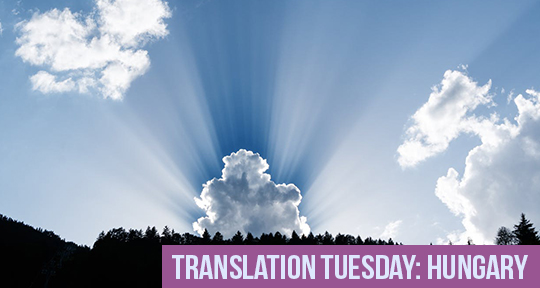For this week’s Translation Tuesday, we bring you two poems by the Hungarian poet Gyula Jenei, in spare, elegant translations by frequent contributor Diana Senechal. In Senechal’s words, “Jenei’s poems convey at least three kinds of outsiderness: societal outsiderness, where he holds a distinctly different view from others; temporal outsiderness, where he returns, disoriented and unsure, to places of the past; and existential outsiderness, where he doubts even himself.” At once laconic and expansive, Jenei’s poems present a fascinating existential struggle, the speaker simultaneously overwhelmed by the ravages of time and the solitude they impose, yet trying all the same to distinguish past and present, to make plans, to “imagine the future” in a chaotic and indifferent universe. Read on!
After a While
ever since my father died, it’s all one whether he
was happy or unhappy. nothing matters to him
anymore. just to us, who remember him, clashed
with him, used him, didn’t love him enough.
only we feel pain if others hurt us: hit us,
ignore us, abandon us in our suffering. READ MORE…

